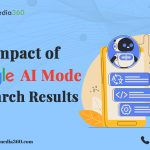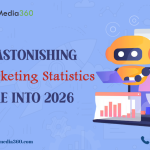Digital Transformation & Marketing Transformation

The advancement & transformation of internet & the growth of digital as a media format, have intense effects on our 21st century life. Everyone believed that digital technology would make things faster. But few people predicted the social impact of digital media which combined with online activity.
In marketing, going digital has a huge effect. The qualities of digital media like accurate metrics, combined with interactivity have created whole new marketing opportunities. So it is sure that digital technology has a powerful role as a marketing tool. But here we will describe about digital transformation and marketing transformation.
The Unavoidable Change:-
 Though the term “digital transformation” sounds unclear, but actually it is rather easy to understand. When professional people discuss about digital transformation, they are talking about how digital technology is understood & then applied & integrated into our everyday work.
Though the term “digital transformation” sounds unclear, but actually it is rather easy to understand. When professional people discuss about digital transformation, they are talking about how digital technology is understood & then applied & integrated into our everyday work.
Hence, the progress to digital records helps to access data, progress faster, and increase the tendency among health professionals for being able to make proper decisions.
However, the digital transformation has already shown what it can do for businesses on an industrial scale like Amazon & Uber. They have taken the concept of traditional business like retail & then applied new digital technologies for which they go ahead in the competition.
The Challenges:-
There are many businesses that have long established systems & process in place. Some systems are settled in the business & changing these systems is challenging in many ways like,
- Responsibility
- Skills
- Tactics
- Agencies
- Customers
A definition of Digital Transformation:-
 Dave Chaffey & James Carson say that digital transformation is,
Dave Chaffey & James Carson say that digital transformation is,
“A staged program of business improvements to People, Process & Tools used for integrated digital marketing to maximize the potential business contribution of digital technology & media.”
But the issue is that companies have different definitions of digital strategy. Forrester in its State of Digital Business 2014 explains digital strategy as “adding a new mobile app to their existing business or developing a social media presence.”
Generally Confusion start for lacking definitions inside organization. But one thing is certain, that digital will have a great impact on business.
The Digital Funnel:-
The first place where digital transformation influencer marketing is the funnel. The funnel is a traditional idea used by marketers to map out the actions of potential consumers & take users through a multi stage journey which finally make user committing to an actual purchase.
The marketing funnel was straight forward before the arrival of digital technologies.
The five stages include:
 Awareness – It is the phrase where users first realize that they may be looking for that product or service that you offer.
Awareness – It is the phrase where users first realize that they may be looking for that product or service that you offer.- Interest – In this stage a shopper research to see if your business suits their needs.
- Consideration – At this stage, the Consumer is serious enough to buy.
- Intent – The stage is when a user is taking decision in a business’s favor as they feel that they need that product or service.
- Decision – In this phrase a consumer turns into a customer by making a purchase.
In a pre-digital marketing world at almost every state, a business could only make marketing materials & then hope for the best. An involvement is possible only when the sales person was there to connect with potential consumers directly.
Now the steps of digital transformation give a large amount of control to the business by providing marketers two new tools – multi-stage interactivity & analytics.
Do we need transformation now?
Its time to transform. The mandatory growth of mobile device use permit users to instantly log in to Facebook, Twitter, Pinterest & other social networks. When they log in, they can openly discuss issues about your business. Tablets & smartphones have made it easier to perform a range of activities like –
- Request customer service
- Complain
- Ask for help
- Share good news
- Suggest new product development
- Look for offers
For businesses this depends on the organization how much they can understand & adopt digital transformation. For example, the long established retailer of UK, Mark & Spencer, launched a new website & it was not famous to the users. It is updated with a new system where users have to re-register on the site. But they could not find this until they would try to add products to the shopping basket & failed again & again. It created a serious negative online comments & the website was confounded for its low volume sale. Even users are still complaining.
 There are other areas where it can be developed. May be it is a traditional process of an organization for updating a new website without users in the system. Brian Solis at Altimeter is doing a research & comments “Digital transformation takes a truly customer-centric perspective that wins over one that’s mainly technology-centric. It starts by simply asking, ‘what would my digital customer do?’ It continues with continually asking & answering the question.”
There are other areas where it can be developed. May be it is a traditional process of an organization for updating a new website without users in the system. Brian Solis at Altimeter is doing a research & comments “Digital transformation takes a truly customer-centric perspective that wins over one that’s mainly technology-centric. It starts by simply asking, ‘what would my digital customer do?’ It continues with continually asking & answering the question.”
Not only Marks & Spencer, Forrester discovered some important abstract between the marketing & technology sides of business. These findings were based on a survey of 1,591 senior business leaders in the UK & US which took place during November, 2013 to January, 2014. This explained that 74% of executives claim that their company has a digital strategy, but the findings show ‘wide disparity’ between strategies.
Conclusion:-
Digital transformation is able to affect a huge scale of business operational & marketing activities. The importance is to understand what is involved, ensure your company has the technology, process & talent in-house to develop & thrive.






